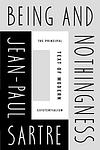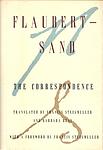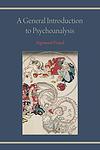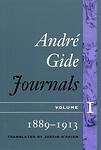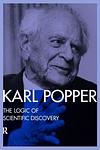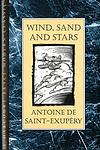The Greatest French, Austrian "Nonfiction" Books Since 1900
Click to learn how this list is calculated.
This list represents a comprehensive and trusted collection of the greatest books. Developed through a specialized algorithm, it brings together 300 'best of' book lists to form a definitive guide to the world's most acclaimed books. For those interested in how these books are chosen, additional details can be found on the rankings page.
Genres
Countries
Date Range
Reading Statistics
Click the button below to see how many of these books you've read!
Download
If you're interested in downloading this list as a CSV file for use in a spreadsheet application, you can easily do so by clicking the button below. Please note that to ensure a manageable file size and faster download, the CSV will include details for only the first 500 books.
Download-
1. The Second Sex by Simone de Beauvoir
This influential work explores the treatment and perception of women throughout history, arguing that women have been repressed and defined only in relation to men. The author presents a detailed analysis of women's roles in society, family, work, and in the creation of their own identities. She discusses the concept of 'the other' and how this has been used to suppress women, while also examining the biological, psychological, and societal impacts of this oppression. The book is a seminal text in feminist theory, challenging traditional notions of femininity and calling for equality and freedom for women.
-
2. Philosophical Investigations by Ludwig Wittgenstein
This book is a seminal work in 20th-century philosophy, presenting a detailed critique of the notion that our language directly corresponds to reality. The author argues that the meaning of words is not inherent, but rather derives from their use within specific forms of life. The book also introduces the concept of language games, suggesting that our understanding of language is akin to learning the rules of a game. The author further explores the limits of language, the nature of understanding, and the relationship between public and private language.
-
3. Man's Search for Meaning by Victor Frankl
This book is a memoir written by a psychiatrist who survived the Nazi concentration camps during World War II. The author shares his experiences in the camps and his psychological approach to surviving and finding meaning amidst extreme suffering. He introduces his theory of logotherapy, which suggests that life's primary motivational force is the search for meaning, and argues that even in the most absurd, painful, and dehumanized situation, life can be given meaning.
-
4. The Myth of Sisyphus by Albert Camus
This book is a philosophical essay that explores the concept of absurdity, and how individuals should respond to life's inherent meaninglessness. It posits that life is essentially absurd due to the conflict between our desire for understanding and the chaotic, indifferent universe. The author argues that the only proper response to this absurdity is to live life to its fullest, embracing and rebelling against the absurdity, rather than resorting to suicide or turning to religion or philosophy for false comfort. The story of Sisyphus, condemned to eternally roll a boulder up a hill only for it to roll back down, is used as a metaphor for the human condition.
-
5. Tractatus Logico-Philosophicus by Ludwig Wittgenstein
"Tractatus Logico-Philosophicus" is a seminal work in analytic philosophy that presents a comprehensive picture of reality and our knowledge of it. The book outlines a logical structure for all scientific discourse, arguing that language and its logical structure are the primary tools for understanding and representing the world. It proposes that all philosophical problems arise from misunderstandings of the logic of language, and that all meaningful propositions are pictures of states of affairs in the world. The book concludes with the famous line "Whereof one cannot speak, thereof one must be silent," suggesting that things that cannot be spoken about logically should not be spoken about at all.
-
6. Being and Nothingness by Jean Paul Sartre
This philosophical work delves into the concept of existentialism and phenomenology, offering an in-depth analysis of human consciousness and existence. The author argues that we are all essentially free and responsible for our actions, and that we construct our own identities through our actions and interactions with others. The book also explores the idea of 'nothingness' and 'bad faith', suggesting that we often deny our freedom and hide from the responsibility of our actions, leading to a life of inauthenticity.
-
7. Letters to a Young Poet by Rainer Maria Rilke
This book is a collection of 10 letters written by a renowned poet to a young aspiring poet, offering advice and guidance on matters of life, love, and the pursuit of poetry. The author encourages the young poet to look inward for inspiration and to embrace solitude as a means of self-discovery. He also emphasizes the importance of patience, personal growth, and the necessity of experiencing life's hardships to truly understand and depict the human condition in poetry.
-
8. Mythologies by Roland Barthes
This book is a collection of essays that explore the layers of cultural and societal meanings that are imbued in everyday objects, activities, and phenomena. The author decodes the symbols and signs embedded in things as varied as wrestling, soap detergents, toys, and even the face of Greta Garbo. The book is a pioneering exploration of semiotics, the study of signs and symbols, and it challenges readers to question and understand the cultural connotations and ideologies that are presented as natural or given in our everyday lives.
-
9. Tristes Tropiques by Claude Lévi-Strauss
"Tristes Tropiques" is a blend of autobiography, travel literature, and anthropology by a renowned scholar. The book is a recounting of the author's travels and anthropological work, primarily in Brazil, in the 1930s. It provides a critical and philosophical reflection on his experiences and observations, offering insights into indigenous tribes like the Nambikwara and Tupi-Kawahib, and exploring themes of cultural change, the nature of anthropology, and the author's own disillusionment with Western civilization.
-
10. Words by Jean Paul Sartre
This book is a memoir that explores the author's early life and development as an intellectual. He reflects on his childhood experiences in a non-linear narrative, detailing his relationship with his mother and grandfather, his early education, and his evolving understanding of language and literature. The author also delves into his philosophical ideas, examining the concept of existentialism and the role of the individual in society. The book serves as a profound exploration of the power of words and the impact of childhood experiences on adult life.
-
11. The Road to Serfdom by Friedrich von Hayek
"The Road to Serfdom" is a classic work of political philosophy and economics that argues against the concept of socialism and centralized economic planning. The author asserts that such systems inevitably lead to totalitarianism, infringing upon individual liberties and stifling innovation. The book further posits that only through free-market capitalism can societies maintain political and economic freedom. The author also explores the dangers of government control over means of production, illustrating that it leads to a loss of personal freedoms and the rise of dictatorial regimes.
-
12. The George Sand-Gustave Flaubert Letters by Gustave Flaubert
This book is a compilation of the personal correspondence between two of the most prominent French literary figures of the 19th century. Their letters offer an intimate look into their lives, thoughts, and the deep friendship they shared. The exchange covers a wide range of topics, including their literary works, their critiques of each other's work, their views on contemporary society, politics, and culture, as well as their personal joys, sorrows, and struggles.
-
13. Discipline and Punish by Michel Foucault
This book delves into the historical evolution of the penal system, examining how Western societies have transitioned from a regime of violent, public physical punishment to a more subtle form of surveillance and control. It introduces the concept of the "panopticon," a metaphor for modern disciplinary societies that exercise power through observation and normalization rather than through overt physical coercion. The work explores the relationship between power, knowledge, and social control, arguing that disciplinary mechanisms are embedded in various institutions, such as schools, hospitals, and prisons, shaping individuals and maintaining order in society.
-
14. A General Introduction to Psycho-Analysis by Sigmund Freud
This book is a comprehensive introduction to the field of psychoanalysis, presented by its founder. It explores the unconscious mind, dreams, and the theory of neuroses. The author delves into the mechanisms of the mind, such as repression and resistance, and how these can lead to psychological issues. He also discusses his controversial theories on sexual desire as a driving force in human behavior. The book provides an in-depth understanding of the human psyche and the techniques used in psychoanalysis to treat mental disorders.
-
15. Civilization and Its Discontents by Sigmund Freud
This book is a seminal work in the field of psychology, exploring the inherent tension between civilization and the individual. The author, a famed psychologist, argues that civilization's imposition of societal norms and restrictions leads to individual unhappiness and discontent. He delves into the conflict between the human desire for freedom and society's need for order, suggesting that this tension is at the root of much human suffering. The book further explores concepts such as the super-ego, guilt, and the death drive, offering profound insights into the human psyche.
-
16. The Mediterranean And The Mediterranean World In The Age Of Philip Ii by Fernand Braudel
This seminal work offers a comprehensive analysis of the Mediterranean region during the 16th century, focusing on the complex social, political, and economic landscapes that defined the era of Philip II of Spain. The book transcends traditional historiography by emphasizing the geographical and ecological factors that shaped human activity, from the ebb and flow of commerce and the patterns of agrarian life to the rise and fall of empires. Through a meticulous study of the Mediterranean world, the narrative weaves together the intricate tapestry of cultures, religions, and power dynamics that characterized the period, providing a vivid portrayal of the enduring influence of the environment on the course of human history.
-
17. The Constitution of Liberty by Friedrich von Hayek
This book is a comprehensive analysis of the concept of liberty, emphasizing the importance of individual freedom in political, societal, and economic contexts. The author argues that a free society, where individuals can act according to their own decisions and plans, is the most effective system for human progress. He also explores the relationship between law and liberty, the role of government in a free society, and the challenges to liberty posed by concepts such as social and economic justice.
-
18. Capitalism, Socialism, and Democracy by Joseph A. Schumpeter
The book provides an in-depth analysis of the interplay between capitalism, socialism, and democracy, arguing that capitalism is a catalyst for creative destruction and innovation, but also paves the way for socialism due to its inherent instability and tendency to create wealth inequality. It further suggests that democracy, while imperfect, is the best system to manage these economic systems. The author presents a unique perspective on the inevitable rise of socialism, not through revolution as Marx predicted, but through the legal and systematic erosion of capitalism by democratic means.
-
19. Three Essays on the Theory of Sexuality by Sigmund Freud
This book is a seminal work that presents the author's theories on human sexuality, including his concept of sexual development through psychosexual stages. It explores topics such as the sexual aberrations, infantile sexuality, and the transformation of puberty. The author argues that sexual drive is present from birth, and that children go through several stages of sexual development. He also discusses the idea of sexual perversions and their origins. This book is considered a foundational text in the field of psychoanalysis.
-
20. Promise at Dawn by Romain Gary
"Promise at Dawn" is a semi-autobiographical novel that explores the life of a young man growing up in Eastern Europe, and later in France, under the shadow of his ambitious and eccentric mother. The protagonist's journey takes him through various phases of his life from his childhood, through his experiences as a pilot in World War II, to his adult life as a diplomat and a writer. The story is a tribute to the protagonist's mother, who instilled in him the values of courage, resilience, and the pursuit of grandeur, even in the face of adversity.
-
21. Journals: 1889-1913 by André Gide
"Journals: 1889-1913" is a compilation of personal entries by a prominent French author, written over a span of 24 years. The journals offer a deep insight into the author's thoughts, emotions, and experiences, providing a unique window into his personal life and his creative process. The entries also reflect on the social, political, and cultural events of the time, making the journals not only a personal memoir but also a historical document of late 19th and early 20th century France.
-
22. The Rebel by Albert Camus
"The Rebel" is a philosophical exploration of rebellion and revolution. It dissects the nature and origins of rebellion, arguing that it arises from a basic human refusal to accept injustice. The book delves into the many forms rebellion can take, from personal revolt to political revolution, and examines the consequences and ethics of each. The author also critically evaluates the rebellious attitudes of various historical figures and movements, highlighting the potential for rebellion to either affirm or destroy human dignity.
-
23. The Forty Days Of Musa Dagh by Franz Werfel
This novel is a gripping historical fiction that recounts the harrowing tale of Armenian villagers who resist their deportation by the Ottoman Empire during the Armenian Genocide of 1915. Centered around the heroic stand of the people of Musa Dagh, the narrative delves into the struggle for survival, unity, and defiance against overwhelming odds. Through the lens of this resistance, the book explores themes of identity, resilience, and the human spirit's capacity to fight for freedom and justice. It serves as a poignant reminder of a dark chapter in history, highlighting the courage and determination of those who fought against their oppressors.
-
24. The Logic of Scientific Discovery by Karl Popper
This book is a significant work in the philosophy of science, proposing a methodology for scientific discovery that challenges traditional inductive reasoning. The author argues that scientific theories can never be proven definitively, but can only be corroborated or falsified through empirical testing. He introduces the concept of falsifiability as the key criterion for distinguishing scientific theories from non-scientific ones. The book also delves into the problems of induction, demarcation, and the relationship between theory and observation in scientific practice.
-
25. Wind, Sand and Stars by Antoine de Saint-Exupéry
This book is a memoir by an early twentieth-century French aviator, sharing his experiences as a pioneer of aviation in the 1920s and 1930s, particularly in remote places such as the Sahara Desert and the Andes Mountains. The author reflects on the nature of adventure, the allure of the unknown, and the profound connection between human beings and the natural world. The book is also notable for its philosophical musings on the nature of life and death, solitude and solidarity, and the human condition.
Reading Statistics
Click the button below to see how many of these books you've read!
Download
If you're interested in downloading this list as a CSV file for use in a spreadsheet application, you can easily do so by clicking the button below. Please note that to ensure a manageable file size and faster download, the CSV will include details for only the first 500 books.
Download




